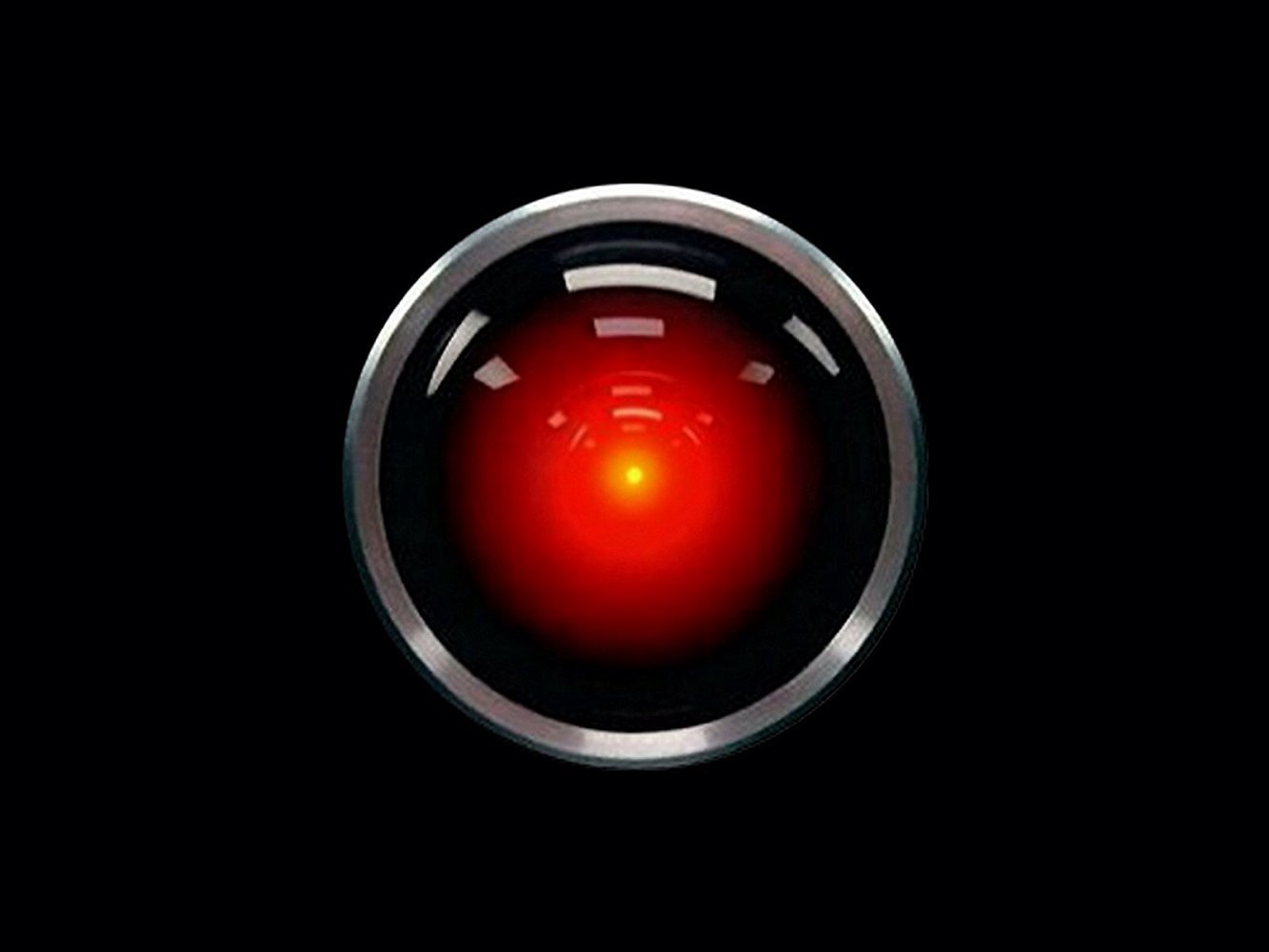Revenge of HAL

Dear friends,
In 2001 I took my fifteen year old son to the Curzon cinema in Mayfair, London, to see a 70mm presentation of 2001: A Space Odyssey. It’s a movie I’ve always loved, and the only proper way to see it is in 70mm (most cinema films of the time were shot and screened in 35mm, and 70mm has double the resolution.) My son was so impressed with the movie that, when it came to our home town a month later, he took two of his friends to see it.
How did the cinematic version of 2001 compare with the actual 2001 in which we were living at the time? In the real 2001 there was no consumer space travel, and Pan Am had ceased trading some years before. There were no space colonies on the moon and nobody was about to launch a voyage to Jupiter. There were computers, but they were much smaller. The computer in 2001: A Space Odyssey occupies a whole room in the spacecraft.
The name of the spacecraft computer is HAL 9000 (or HAL for short). If you want to know where it got its name, try shifting each alphabetical letter forward by one. HAL is an early example of Artificial Intelligence (A.I.). In the movie, HAL learns that he is about to be shut off, and begins to act independently; he starts by eliminating the crew. The malevolence of the computer seems at odds with its bland and reassuring voice. The movie expertly creates tension between HAL and the one surviving astronaut struggling for his life.
The movie was directed by Stanley Kubrick, one of the greatest filmmakers of his generation. If there is a common theme to his movies, it is the presence of evil. This is why Christians should take an interest in his oeuvre, although Kubrick was not a religious person, nor was he very interested in showing the forces of good. He was primarily a cinematic artist and perfectionist. Unlike his friend Steven Spielberg, Kubrick made movies that were cool and unsentimental.
In 2024 the subject of A.I. has leapt to the forefront of our lives. A simple Google search throws up an “AI overview,” which is like reading a subject summary from the smart kid in the classroom. Pupils at college are using A.I. to write essays, business managers to write speeches. There are A.I. influencers on YouTube and A.I. musicians. I have even read A.I. poetry, which is surprisingly good. Move over Byron, Shelley and Keats, here comes the son of HAL!
I did not ask A.I. to write this meditation, although it might be interesting to see what it would come up with. I’m in that “I don’t need the world to change any more” kind of mood right now. It must be a sign of old age, when technology sweeps through the world and you stand there like King Canute trying to resist the oncoming tide.
Actually, I will never ask A.I. to write me a meditation or a sermon or anything, not even for a practical joke. The reason has nothing to do with pride. I am quite willing to accept that A.I. will write a better sermon than me. Rather, it has everything to do with wishing to guard a vital area of human life from technological encroachment: the area of creativity. Whenever human beings cede their creative function to a program or a machine, they have in effect surrendered an essential aspect of their human identity.
Let me explain. This can be approached from the point of view of relationship. Our primary relationship with God can be defined as creator/creature. God is our creator, we are God’s creatures. At the same time, we are made in God’s likeness and invested with creative gifts. This makes human beings unique among the whole of creation. When we exercise our creative gifts we are imitating God. Therefore, through our creativity, we are becoming closer to God.
Consider what happens when we outsource our creativity to A.I. One argument in favor is that the end result will be better than we could have achieved without it. We are saved from the toil and sweat of creating something ourselves and this will make our lives easier.
However, in exchange for an easy life, we have given up part of what makes us human. Not only that, but now it is A.I., not ourselves, which is imitating God. In this way we have made A.I. into a god. It is a false god, obviously, but in the coming years it is one we will worship with increasing frequency. We will see this in the way that people will begin to demand perfection in numerous areas, and advertising will boast, “created by A.I.”
Where will it end? That is a question I will leave to science fiction writers to answer. What seems certain is that HAL has made a comeback. Are you willing to fight back?
With Advent blessings,
Father David


0 Comments
There are no comments.
Stay Tuned
Sign-up for David's newsletter